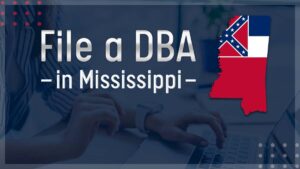One of the longest running and most passionately argued debates on LinkedIn concerns the issue of payment for directors of not-for-profit organisation boards. Although the focus of the mainstream press has remained fixed on the high salaries of executive directors and the apparent abuses of performance hurdles so that executives are rewarded for destroying, rather than creating value, the issue of how to remunerate non-executive directors (NEDs) is one that many smaller companies grapple with.
At the ‘top end of town’ the large listed companies pay NEDs a set directors fee, often with a component that is paid into a superannuation fund, which does not vary with corporate performance or other hurdles. The governance codes recognise that performance related pay, with its issues of timing and disclosure, is not appropriate to remunerate the custodians of long term value creation.
Many board advisers would advocate provisions to ensure that stock options and performance related remuneration were reserved for the executives and never used for NED remuneration.
However, I prefer to see boards (and, if you can get them into a decision-making forum, shareholders) consider the principle and then adopt the practice that best suits them given the strategy and circumstances of the company.
Start-ups and turnarounds often have very limited cash available, and few avenues for raising equity and debt. Those companies need to think very carefully about how they remunerate their NEDs.
There is great value in independence and this is sacrificed if the NEDs have stock and/or options as a significant component of their remuneration. However, if there is not enough cash to attract competent NEDs then the choice of sacrificing independence to gain competence becomes a valid choice. It should not be made lightly or without putting in place some very clear risk management to avoid or reduce the conflicts of interest that will arise.
Companies have gone to IPO with weak boards because they simply would not pay for proper NEDs. These companies rarely prosper. A swift takeover at an almost advantageous price is the best outcome that their unfortunate shareholders can expect.
The more normal outcome is a slow process of under-performance and missed opportunities followed by an accelerating process of deterioration as unmanaged risks and poor decisions decrease the value of the company and its stock until it is quietly delisted or suffers an acrimonious takeover in which the shareholders lose almost all the value of their investment.
It can be galling to see the NEDs walk away from the disaster claiming they did the best that could be done under the circumstances (which they allowed to eventuate).
There are several good NEDs in the high technology and mining sectors who receive some compensation in the form of stock options. These are often options that vest slowly and result in shares with escrow provisions. In these cases shareholders are generally sophisticated and aware of the risks of the sector and the likely (or unlikely) prospects of success.
The shareholders make a rational decision to accept the use of stock to conserve cash and know that this increases some risks whilst managing another. The value and quantum of stock and the hurdles for triggering release are fiercely debated at AGMs and EGMs until a solution is achieved that meets the needs of all concerned. Constitutions, charters and governance practices and structures are specifically designed to manage the conflicts of interest that will inevitably arise.
Remuneration is a complex and nuanced aspect of company strategy and most good boards will have some very serious discussions about it. Good expert advice is needed if you are going to adopt a practice that deviates from general governance recommendations. Excellent disclosure and informed shareholders are required to properly authorize the use of stock as a component of NED remuneration.
Many of the disasters where NEDS have acted from conflicts positions because of the impact to their options or stock holdings have come from companies that did not consider and manage the governance risks and that disclosed it to their shareholders in a minimalist fashion. We should be wary lest many others repeat these disasters. Boards need a governance regime that permits companies use any form of compensation that meets their strategic needs.
Shareholders need a generally accepted good practice; a simple directors fee paid annually in instalments like a salary is probably the simplest solution and creates the least number of risks to be managed. Disclosure and informed markets should support appropriate investment decisions and funds should flow preferentially towards companies with good strategic remuneration policies, at board and executive levels.
What do you think?
______________________________________
Julie Garland-McLellan has been internationally acclaimed as a leading expert on board governance. See her website and LinkedIn profiles, and get her books Dilemmas, Dilemmas: Practical Case Studies for Company Directors and Presenting to Boards.
 Sections of this topic
Sections of this topic















